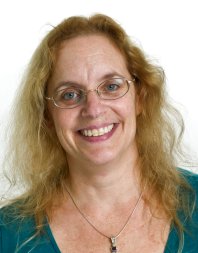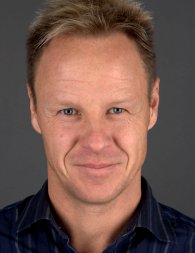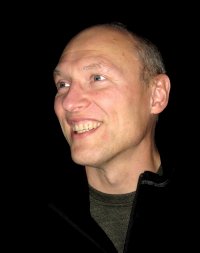
Keynote Talks
 |
 |
 |
| Marian Petre | Mark Sagar | Wolfram Schulte |
| The Value in Muddling Around Modelling | Creating Models for Simulating the Face | Finding Models in Model-Based Development |
| 19 October | 20 October | 21 October |
| 9.15-10.30, Soundings Theatre | ||
Marian Petre
The Value in Muddling Around Modelling
 Software is a designed artifact. In other design disciplines, such as building architecture, there is a well-established tradition of design studies which inform not only the discipline itself but also tool design, processes, and collaborative work. This talk considers software from such a 'design studies' perspective. The talk will present a series of observations from empirical studies of expert software designers, and will draw on examples from actual professional practice. It will consider what experts' mental imagery, software visualisations, and sketches suggest about software design thinking. It will discuss which representations designers use when allowed to choose freely, how designers' informal representations relate to the formal representations from their discipline, how the character of their informal representations facilitates design discussions, and why many of the functions afforded by their sketching are not well supported by existing CAD systems. It will consider what the observations and sketches reveal about requirements for an idea-capture tool that supports collaborative design. The talk will also discuss some of the deliberate practices experts use to promote innovation. Finally, it will open discussion on the tensions between observed software design practices and received methodology in software engineering.
Software is a designed artifact. In other design disciplines, such as building architecture, there is a well-established tradition of design studies which inform not only the discipline itself but also tool design, processes, and collaborative work. This talk considers software from such a 'design studies' perspective. The talk will present a series of observations from empirical studies of expert software designers, and will draw on examples from actual professional practice. It will consider what experts' mental imagery, software visualisations, and sketches suggest about software design thinking. It will discuss which representations designers use when allowed to choose freely, how designers' informal representations relate to the formal representations from their discipline, how the character of their informal representations facilitates design discussions, and why many of the functions afforded by their sketching are not well supported by existing CAD systems. It will consider what the observations and sketches reveal about requirements for an idea-capture tool that supports collaborative design. The talk will also discuss some of the deliberate practices experts use to promote innovation. Finally, it will open discussion on the tensions between observed software design practices and received methodology in software engineering. Biography
Marian Petre is a Professor of Computing at the Open University, UK. She holds a Royal Society/Wolfson Research Merit Award in recognition of her research on expertise in software design. She 'picks the brains of experts', studying how leading professional software developers reason about, represent, and communicate designs. With degrees in both Psycho-linguistics and Computer Science, Marian takes an interdisciplinary approach to research in Computing, and she draws on cognitive theory to explicate expert design behaviour and reasoning. Her research spans empirical studies of software development, programming paradigms and notations, software visualisation, flexible modelling tools, cognitive dimensions of notations, psychology of programming, and computer science education.
Mark Sagar
Creating Models for Simulating the Face
 Creating animated computer generated faces which can withstand scrutiny on the large screen is a daunting task. How does the face move? How does it reflect light? What information is relevant? How can it be captured and then transformed to convincingly breath life into a digital human or fantastic creature? The talk will give examples of new technologies and methodologies developed to achieve this in blockbuster films including "Avatar" and will point the way to the next generation of computer generated characters by showing the increasing importance of computational simulation and discovering and modeling what is really going on underneath the skin.
Creating animated computer generated faces which can withstand scrutiny on the large screen is a daunting task. How does the face move? How does it reflect light? What information is relevant? How can it be captured and then transformed to convincingly breath life into a digital human or fantastic creature? The talk will give examples of new technologies and methodologies developed to achieve this in blockbuster films including "Avatar" and will point the way to the next generation of computer generated characters by showing the increasing importance of computational simulation and discovering and modeling what is really going on underneath the skin. Biography
For the last 15 years, Dr. Mark Sagar has specialized in bringing computer generated faces to life in some of Hollywood's biggest blockbusters including "Avatar" and "King Kong". He has developed technologies for interactive applications and for feature films and has won two consecutive Scientific & Engineering Academy Awards for his pioneering work in facial motion capture and realistic relighting of computer generated faces.
Mark began his professional life as an engineering PhD at the University of Auckland, creating an eye surgery simulator that took him to the Massachusetts Institute of Technology. After moving to Los Angeles he became the Co-Director of Research and Development at Pacific Title/Mirage and then LifeFX Inc. and was the Special Projects Supervisor at Sony Pictures Imageworks before returning to New Zealand where he is currently the Special Projects Supervisor at Weta Digital.
Wolfram Schulte
Finding Models in Model-Based Development
 Model-based development employs models to design, analyze, code, and test software systems. But what is a design or a test model? What properties do we want to hold for those models? Modern meta- modeling frameworks tackle this problem with a divide-and-conquer approach: First, a meta-model captures the key assumptions and constraints nascent to a problem domain. Second, instance models are constructed against a meta-model and must adhere to its regulations. Today, meta modeling tools generate authoring environments, enable code generation and report constraint violations. But they do not find instance models!
In this talk I will present Formula, a new formal specification language and toolset for describing, transforming and analyzing meta-models and instance models. Formula uses regular types and constraint logic programming as its formal foundation. Unlike other approaches, Formula automatically finds instance models satisfying all the rules of a given meta-model. This provides a much deeper form of guidance for developers than available in most tools. Also, our approach immediately generalizes to design space exploration and automatic proofs of transformation properties (slides available).
Joint work with Ethan Jackson, Nikolaj Bjorner, Dirk Seifert, Markus Dahlweid, Thomas Santen.
Model-based development employs models to design, analyze, code, and test software systems. But what is a design or a test model? What properties do we want to hold for those models? Modern meta- modeling frameworks tackle this problem with a divide-and-conquer approach: First, a meta-model captures the key assumptions and constraints nascent to a problem domain. Second, instance models are constructed against a meta-model and must adhere to its regulations. Today, meta modeling tools generate authoring environments, enable code generation and report constraint violations. But they do not find instance models!
In this talk I will present Formula, a new formal specification language and toolset for describing, transforming and analyzing meta-models and instance models. Formula uses regular types and constraint logic programming as its formal foundation. Unlike other approaches, Formula automatically finds instance models satisfying all the rules of a given meta-model. This provides a much deeper form of guidance for developers than available in most tools. Also, our approach immediately generalizes to design space exploration and automatic proofs of transformation properties (slides available).
Joint work with Ethan Jackson, Nikolaj Bjorner, Dirk Seifert, Markus Dahlweid, Thomas Santen.Biography
Wolfram Schulte is a principal researcher and the founding manager of Microsoft's Research in Software Engineering (RiSE) team in Redmond, Washington. His research interest is in providing better software development languages, and verification and validation tools. He co-designed Microsoft's LINQ and Task Parallel Library; he co-built the model-based testing tool Spec Explorer and the unit testing tool Pex; he co-developed the program verifiers Spec# and VCC. His latest passion is a new constraint logic programming language called Formula. He has a PhD from TU Berlin, a state doctorate from the University of Ulm, and he has worked as a software developer at sd&m.